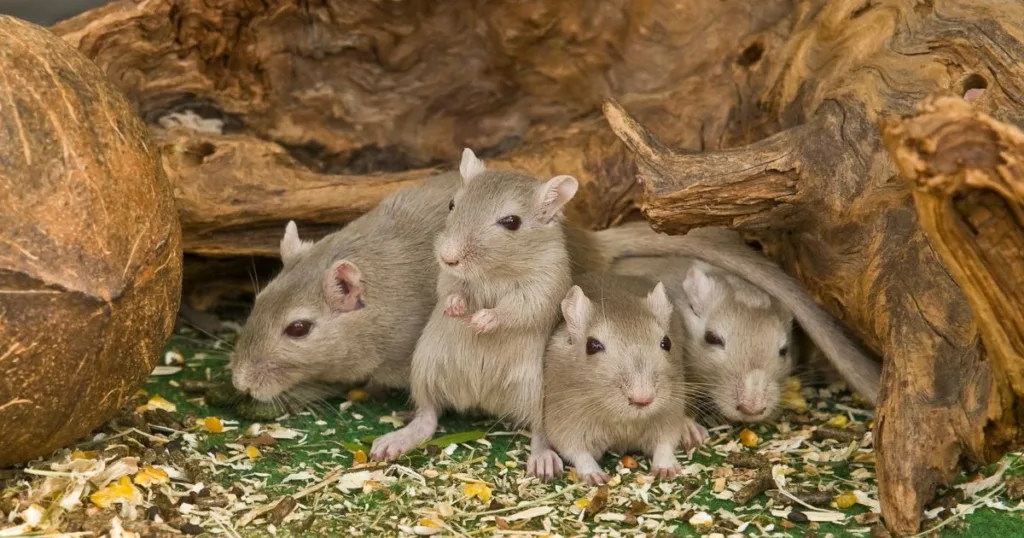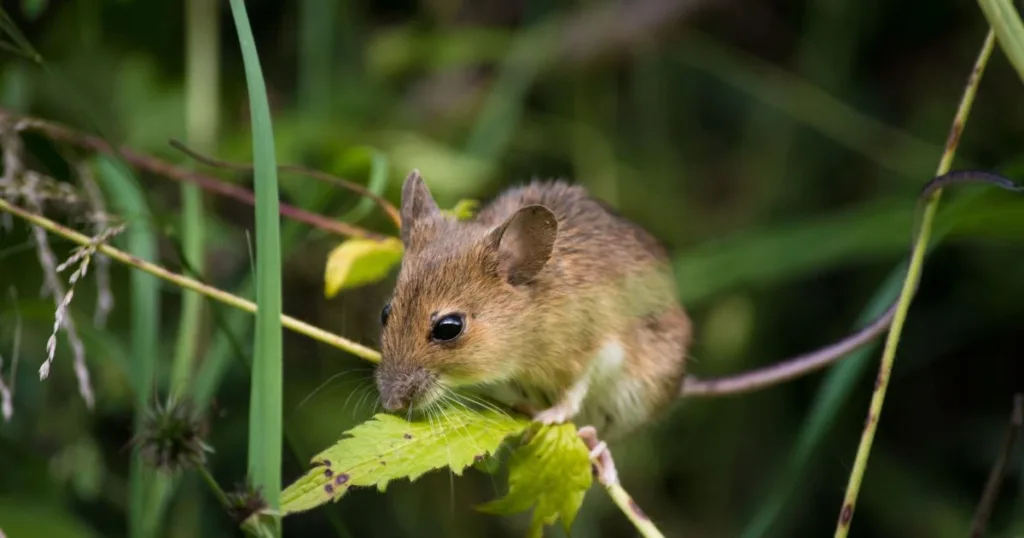
If you're searching for natural ways to keep rodents away from your home, you've likely heard about peppermint oil. Do mice like the smell of peppermint? The answer is no—mice typically find peppermint's strong scent unpleasant and tend to avoid areas where it is present. This makes peppermint oil a common ingredient in do-it-yourself rodent repellent solutions.
Many people use cotton balls soaked in peppermint oil or peppermint sprays in places where mice might enter, such as basements, kitchens, or garages. While some claim these methods are effective, it's essential to understand why the sharp aroma works and how long its effects might last in your specific situation.
If you've been wondering whether peppermint is worth trying as a deterrent or are curious about the science behind these claims, you're not alone. Understanding how mice respond to various scents can help you make informed decisions about pest control.

Mice have highly sensitive olfactory systems that play a crucial role in their interactions with their environment. The effectiveness of peppermint odor as a method for deterring mice is shaped by scientific findings, observed behaviors, and comparisons with other scent-based options.
Research on whether mice like the smell of peppermint has produced mixed results. Laboratory studies have shown that mice possess a strong sense of smell, enabling them to detect a wide range of scents, including peppermint. Some scientific experiments suggest that peppermint oil contains compounds such as menthol, which can activate sensory pathways in mice, sometimes leading to avoidance behavior.
A key finding is that high concentrations of peppermint oil may temporarily impair a mouse's ability to locate food sources or nesting materials. However, the intensity and duration of this effect depend on factors such as ventilation, the amount of oil used, and the frequency of application. Importantly, not all research supports the idea that mice universally dislike the smell of peppermint; therefore, responses can vary across different environments and mouse populations.
Observational studies suggest that exposure to peppermint oil or peppermint-based mouse deterrent products often results in changes in mouse activity. You may notice mice initially avoiding areas treated with peppermint-scented substances, especially at higher concentrations.
Reports from pest management professionals and homeowners also note that while mice and peppermint interactions may initially lead to avoidance, this effect can diminish over time. Mice can adapt if the scent is not consistently reapplied. Additionally, if nesting sites or food are easily accessible, some mice may completely disregard the scent barrier.
Key behavioral observations:
When evaluating whether to use peppermint mice deterrents, you may want to compare them with other popular scent-based methods. Some common alternatives include ammonia, mothballs (made from naphthalene), and predator urine. Unlike peppermint, some of these scents are hazardous to humans and pets or require special handling.
The table below summarizes key features of popular scent deterrents:
| Scent Type | Safety Concerns | Ease of Use | Reported Effectiveness |
| Peppermint Oil | Low | Simple sprays | Moderate-Temporary |
| Ammonia | Medium-High | Needs caution | Moderate |
| Mothballs | High | Limited | Variable |
| Predator Urine | Medium | Specialized | Moderate |
Peppermint oil offers a non-toxic alternative, but its results often require frequent application and may not provide long-term protection. Interactions between mice and peppermint scent can be less predictable compared to more potent chemical-based repellents.

Peppermint oil is commonly marketed as a natural method to deter mice from entering homes or storage areas. Studies and practical experience have yielded mixed results regarding the actual repellent and toxic effects of this substance on mice.
The duration of peppermint oil’s repellent effect is usually short. When applied to cotton balls or surfaces, its strong scent fades within a few hours to a few days, depending on airflow, temperature, and oil concentration.
For sustained effectiveness, reapply peppermint oil every 1 to 2 days. Strong odors initially discourage some mice from crossing treated areas. However, once the scent weakens, mice quickly return.
Using highly concentrated peppermint oil increases the chances of temporarily repelling mice, but it does not provide lasting protection. The effect is most potent in enclosed or unventilated spaces where the aroma lingers the longest.
Key Points:
Peppermint oil irritates the nasal passages of rodents due to its intense scent molecules, especially menthol. Mice rely heavily on their sense of smell, so that strong odors may interfere with their navigation and communication.
Research shows mice may avoid areas with heavy peppermint scent, treating it as an unpleasant stimulus. However, the reaction depends on the mice’s hunger, nesting pressure, and scent concentration.
Peppermint oil does not physically harm mice at standard application levels. It does not affect their health, breeding, or ability to survive. The oil’s main action is to create a sensory barrier, encouraging them to find alternative paths.
List of effects:
Peppermint oil does not kill mice when used as a repellent. Its scent alone is not toxic at levels safe for humans and pets. Applying peppermint oil in living spaces is not enough to eliminate a mouse population.
In laboratory tests, only extremely concentrated essential oil extracts or direct ingestion can cause toxicity, which is unsafe for household use and not recommended. Mice exposed to peppermint oil in practical scenarios simply avoid the area until the scent dissipates.
If you require actual removal or extermination, mechanical traps or professional pest control methods are far more effective. Peppermint oil is not a kill solution, but it may complement other deterrent steps in your pest prevention strategy.

If you’ve tried peppermint oil for mice and noticed it’s no longer effective, you aren’t alone. Sometimes rodents adapt, or the scent fades quickly, leaving your home unprotected.
Peppermint oil doesn’t kill mice; it may only repel them for a short time. Relying on it as your leading solution is not recommended if you have a persistent problem.
Signs Peppermint Oil Has Stopped Being Effective:
| Myth | Fact |
| Peppermint oil kills mice | Peppermint oil only repels mice; it does not kill them. |
| It works long-term | Mice often adapt, and scent fades quickly. |
If you’re still spotting signs of mice, it’s time to contact professionals. Humane wildlife removal companies know how to identify entry points, safely remove rodents, and help prevent future infestations.
For a quick, effective, and humane solution, consider reaching out to Critter Stop. Critter Stop has excellent customer reviews and is recognized for reliable, thorough service and outstanding support. Call (214) 234-2616 to schedule a free inspection for any wildlife or pest issue on your property.
Peppermint oil is often discussed as a mouse repellent, but its effectiveness and the nature of mice’s responses vary. Here are answers based on current research and practical experiences.
Mice tend to dislike the strong scent of peppermint oil and usually avoid areas where it is present. However, avoidance depends on how concentrated the peppermint smell is and how often it is reapplied.
Peppermint oil can deter some mice for a short time, especially in spaces where the odor remains strong. It does not always prevent determined mice from searching for food or shelter, and is less effective in areas with abundant entry points.
In some cases, using peppermint oil may reduce mouse activity in treated areas if reapplied frequently. Peppermint alone rarely eliminates an infestation or addresses the root causes, such as food accessibility and entry holes.
Some studies have shown that peppermint oil contains compounds like menthol, which can irritate mice’s nasal passages and deter them. The repellent effect is not permanent, and mice may acclimate after repeated exposure.
Peppermint oil’s scent typically fades within a few days, especially on cotton balls or porous surfaces. You usually need to reapply it every 2 to 3 days to maintain its continued repellent effect.
Visit our Critter Library and learn more about our furry friends